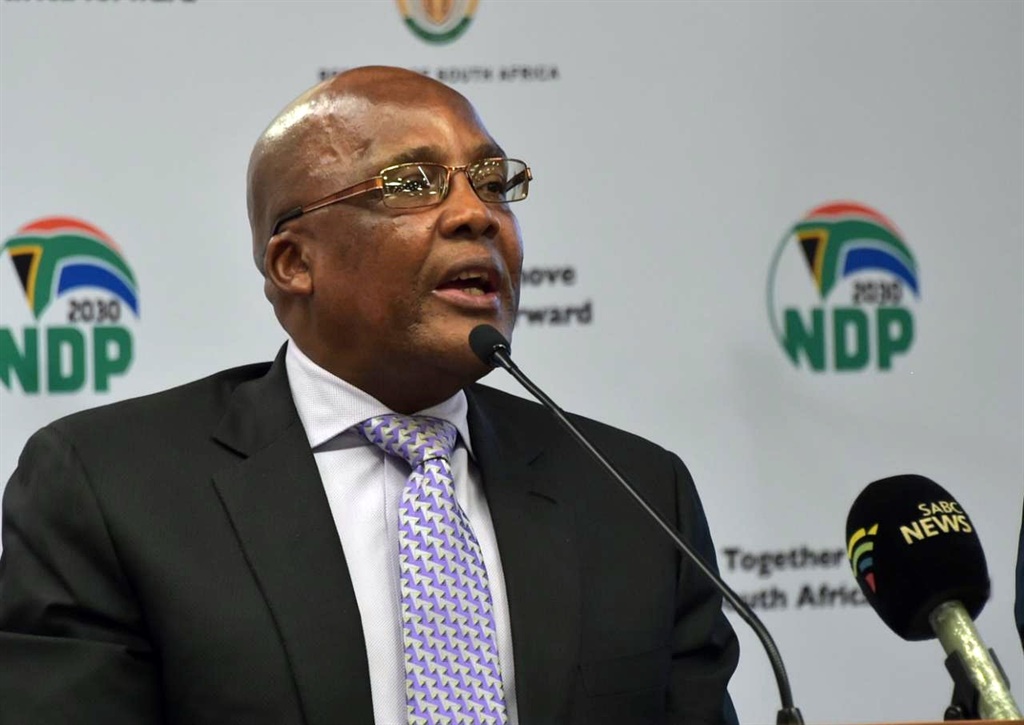


Minister of Home Affairs Aaron Motsoaledi at a briefing on the coronavirus.
- The Department of Home Affairs’ budget has to be cut by R562 million, but this won’t affect service delivery.
- The IEC will cut R35 million from its outreach programme.
- The IEC proposed an e-voting pilot project, but this is currently unfunded.
The Department of Home Affairs and the Electoral Commission of South Africa (IEC) will have their budgets slashed, but neither expects it to affect the core of their work.
The IEC is also looking into electronic voting, a step which was met favourably by the Portfolio Committee on Home Affairs.
The department, IEC and the Government Printing Works briefed the committee on their adjusted budgets.
READ | IEC looks to postpone elections because of Covid-19
Two weeks ago, Finance Minister Tito Mboweni tabled an adjustment budget to fund the government’s response to the Covid-19 pandemic. This affects most government departments and entities.
The Department of Home Affairs is on the wrong end of a budget adjustment of R562 million.
Home Affairs Minister Aaron Motsoaledi said the department was instructed to “bring back R562 million to Treasury”.
However, acting director-general Jackie McKay said they have taken a targeted approach with the budget cut, which will have a minimal effect on their annual performance plan and strategic plan.
Impact
He said the impact of the Covid-19 pandemic will be greater.
The department will absorb the budget cut by taking money from projects they can delay until next year, not buying uniforms and cutting travel and accommodation costs, as they don’t expect much travel for the rest of the year.
They will also be able to fill critical posts.
The IEC has to cut R35 million from its budget. They will cut this money from their outreach programme, which will not affect the IEC’s operations budget.
“In order to increase efficiencies in the electoral process and to ameliorate intractable challenges, especially in the counting and capturing of results, the commission has proposed an e-voting pilot project,” reads the IEC’s presentation.
“The foremost consideration in the use of technology is to drive down the costs of elections and increase operational efficiencies. This initiative is currently unfunded.”
In a statement released after the meeting, committee chairperson Bongani Bongo said they welcomed the IEC’s progress in preparing for the 2021 local government elections, saying it is “particularly praiseworthy in light of the uncertainty caused by the Covid-19 pandemic and funding pressures arising from the reprioritisation of budgets to fund the fight against the disease”.
E-voting
“The e-voting proposal is of major importance. The committee agrees with the IEC that to increase efficiencies in the electoral process, e-voting must be considered, especially because such technology has the potential to drive down election costs and increase operational efficiencies.”
However, the committee is concerned about the impact of the budget cut on the IEC’s outreach programme.
“While the committee is cognisant that some programmes have to be compromised, it called for a re-imagined and amplified process of stakeholder engagement, using traditional and social media. All effort must be made to actively promote awareness and participation in electoral processes,” reads the statement.
The committee welcomed that the department’s budget cut will not affect short-term service delivery.
“The department’s approach will ensure that cuts are not based on a one-size-fits-all approach, but are targeted to minimise the impact on service delivery. This includes delaying some projects that can be dealt with later or where no contractual commitments have yet been made. This is progressive and must be commended,” Bongo said.
Regarding the Government Printing Works, the committee noted that because it is a revenue-generating entity, it is not required to cut its baseline.

